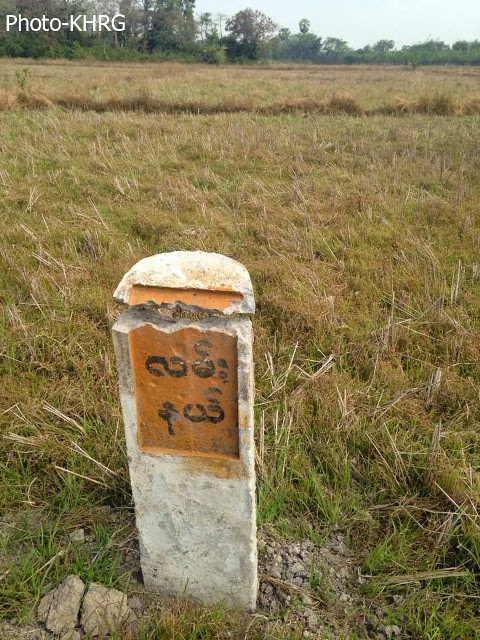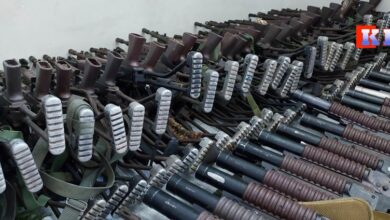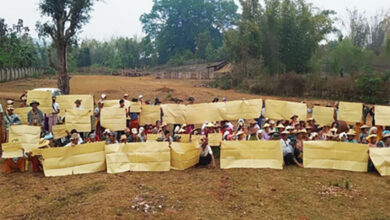Asia Highway Link Between Eindu and Kawkareik Town Threatens Villagers Livelihoods

A news bulletin released by the Karen Human Rights Group stating that a road planned by the Burma government with funding from the Asian Development Bank threatens villagers’ ability to earn a living.
The Karen Human Rights Group claim that if the Asia Highway link between Eindu and Kawkareik goes ahead the “construction would result in the confiscation of villagers’ land posing a threat to their basic livelihoods.”
The Karen Human Rights Group said in its bulletin that, “the Asia Highway is a large-scale, regional project funded in part by the Asian Development Bank (ADB). The section of the highway under consideration in southeastern Burma/Myanmar will connect Eindu to Kawkareik Town and will cross through 17 villages and one town in Hpa-an, Kyonedoe and Kawkareik townships in Dooplaya and Hpa-an districts.”
KHRG said the highway construction would “affect many villagers’ plantations, paddy fields, shops and houses along the route, resulting in a number of possible negative impacts.”
The Karen Human Rights Group said the “Burma/Myanmar government often undertakes such projects without respecting the rights of local people or considering the benefits they may gain from the project.”
The Karen Human Rights Group said only one of the communities impacted by the proposed construction has been consulted.
The Karen Human Rights Group warns that as the road construction “will grant greater access to the area for foreign direct investment and additional development projects that may also occur.”
Villagers became of plans for a highway running through their region in late 2014, when noticed a group of people who came a “survey team placed signs and many concrete markers along the planned highway route.”
An villager cited in the KHRG bulletin said, “We asked them, ‘why are you measuring the road?’ They said that they were measuring the road according to orders given to them from their leaders [Burma/Myanmar government authority] and that they did not know anything.”
The KHRG bulletin criticized highway developers for not consulting with the communities likely to be effected by the construction “and instead demarcated the planned route while disregarding the villagers’ property rights, as well as their right to free, prior and informed consent (FPIC).”
KHRG reported that “in Thayar Gone village, one of the villages affected by the road project, a few representatives from ADB did meet with community members. Although they asked about the villagers’ perspectives and concerns regarding the Asia Highway, they did not provide any information when villagers inquired about whether they would receive any compensation for their lost land. This is the only case KHRG has received of a village having had any consultation.”
The Karen Human Rights Group explained that there were four main points to consider when assessing the highway construction.
“First, groups involved have not been properly consulted with or guaranteed compensation for potentially lost land, and have therefore had their right to FPIC violated. Second, the planned route of the road will lead to the destruction of individuals’ property in 17 villages and one town, including homes, shops, paddy fields and plantations being destroyed. Third, the destruction of this property will impact villagers’ livelihoods, with the possibility of displacement and economic migration as a result. Finally, the road project has already negatively affected community members, as the presence of road planners and route markers have placed villagers along the highway in a position where they feel under threat due to not knowing if and when their property will be taken over, when the road construction will start and whether or not they will receive fair compensation.”
The Karen Human Rights Group said that villagers in eastern Burma do not trust the government as its military continues to “confiscated hundreds of thousands of acres of land for military purposes while the government has also allowed domestic and foreign companies to establish gold mines, carry out logging, build dams, develop infrastructure, and seize land for large-scale agricultural projects which have been creating land tenure problems throughout southeastern Burma/Myanmar.”
For full KHRG’s bulletin link click here.




